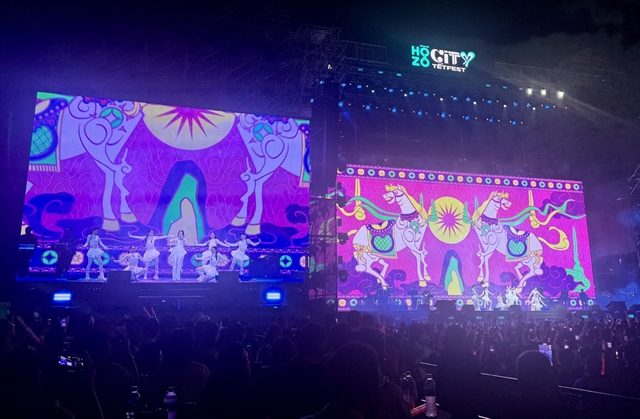 Features
Features

It is not often that a movie keeps you on the edge of your seat while reducing you repeatedly to tears. This is what “Thưa mẹ con đi” (Goodbye, mother) did to me.
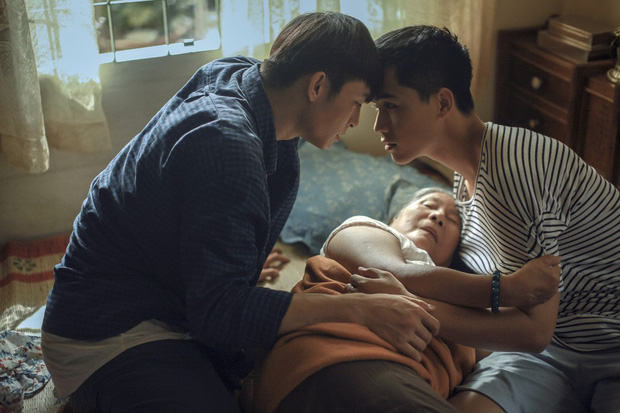
|
| TENDER: The love of Văn (Lãnh Thanh - left) and Ian (Gia Huy - right) is portrayed in their most everyday light in the movie. Photos courtesy of Trịnh Đình Lê Minh |
by Thu
It is
This is what “
It was funny at first, and then it ran the gamut of human emotions
This, for me, is this film’s greatest strength and its director’s greatest
“
The story and the plot are straightforward.
It helps the visuals a lot that the reunion takes place in the countryside of southwestern
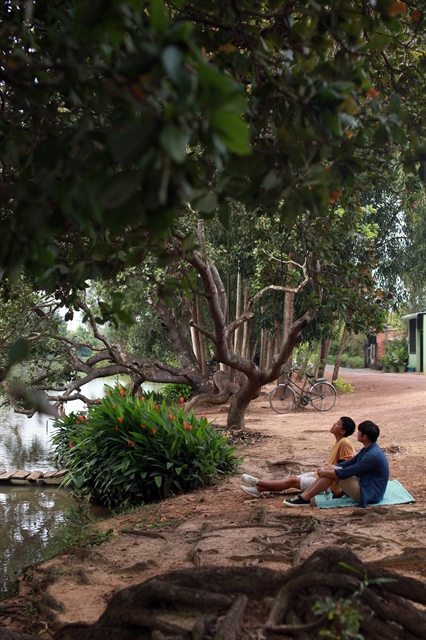
|
| PEACEFUL: The story takes place in the countryside of southwestern Việt Nam with its signature beautiful landscapes. |
A family of three generations stays in a big house in this sylvan setting, and here,
In a country where traditional Confucian values still hold strong and demand social conformity,
Faced with this barrage of
Meanwhile, Ian, born and raised in the States, is not just sad, but also mad at
Things change in the second half of the movie, when
Played by veteran actress

|
| TOUCHING PORTRAYAL: Veteran actress Hồng Đào (first left) is the highlight of the movie. |
She tries to persuade Văn to marry a girl living nearby. She forces Văn to tell everyone about his future plan as a “normal man” at a family party. But
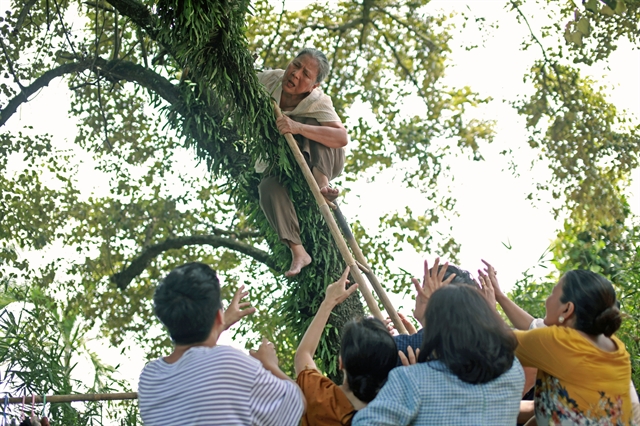
|
| CAPTIVATING CHARACTER: Văn's grandmother, played by actress Lê Thiện, puts a smile on everyone's face whenever she appears on screen. |
Then, the director pushes things along.
Ian gets beaten by
And when the cousin’s mother rushes out and insults Văn by calling him “
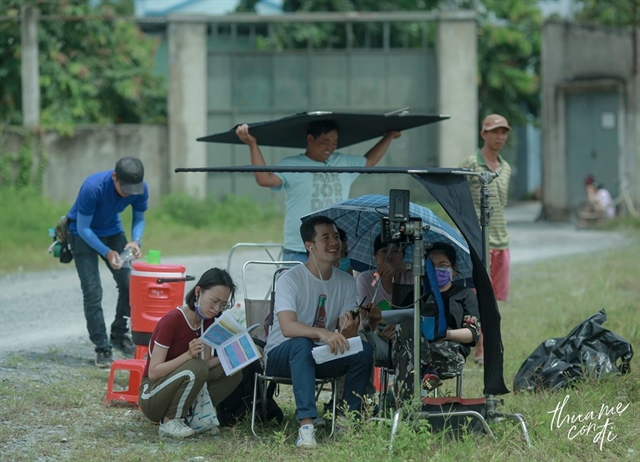
|
| WORKING HARD: Director Trịnh Đình Lê Minh (third from left, sitting) directs a film shot. |
Moved to tears
I cried many times during the movie: when Ian gets beaten, when Văn cleans Ian’s injuries, when Văn cries lying on his mother’s bed, touching her toes and begging for acceptance.
But at one point, my tears came even before the scene reached its climax.
There was so much love, so much understanding, so much acceptance, so much humanity in that scene.
The movie also does a great job of showing LGBT in a normal light: there was nothing over-sexually visually, it felt honest, sweet and beautiful even in its sheer ordinariness. It’s not the most thrilling ride in the park, but it was this vanilla, sex-less yet deeply sensitive portrayal of gay relationships.
Without revealing more details and going into its shortcomings, which more qualified critics can enumerate, I can say confidently that this is a
On the